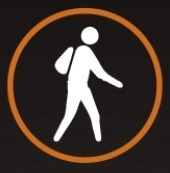 Okay, in part four Teamwork for Suburban and Urban Survival, today we talk about a list of skills that we may think are important for you, your friends, and team to know in a short or long term survival situation. As I scour the Internet for lists of essential skills to pick and choose from, I came across one of Jack Spirko’s (Publisher of The Survival Podcast) Website’s called Save Our Skills that tries to capture, preserve, and publish the processes of skills that are just not taught anymore. The site is in its infancy in my opinion, but has the potential to blow up.
Okay, in part four Teamwork for Suburban and Urban Survival, today we talk about a list of skills that we may think are important for you, your friends, and team to know in a short or long term survival situation. As I scour the Internet for lists of essential skills to pick and choose from, I came across one of Jack Spirko’s (Publisher of The Survival Podcast) Website’s called Save Our Skills that tries to capture, preserve, and publish the processes of skills that are just not taught anymore. The site is in its infancy in my opinion, but has the potential to blow up.
Here is a list of the skills that I think everyone should you should look at. By no means do I think it is complete, nor 100% correct. So feel free to comment and add to the list as you wish.
- Shelter (Why – to protect yourself from the elements, have a base of operations, and protection from other external forces of nature)
- Construction, Electrician, Plumbing, masonry, HVAC, refrigeration
- Both current and more primitive methods of construction, plumbing, etc.
- Construction, Electrician, Plumbing, masonry, HVAC, refrigeration
- Food (Production of food and water)
- Water, Farming, gardening, hunting, fishing, butchering, preservation of food and water. Hunting is a skill that too many urbanites or suburbanites have never partaken of.
- Transportation (I don’t care who you are, if you have to get from point A to B you want to get there in a reasonable amount of time that does not reduce your productivity enough to inconvenience you)
- Auto repair (this will be huge), Bio Diesel refinement, Motorcycle and ATV (snowmobile, quad, three wheeler) repair, Boat repair, small engine repair
- Communications (If you are in a closed community, the community may choose to run their own communications systems instead of rely upon the telephone company. This can be accomplished with an electronic phone system. However, if this is the case, specialized skills would be required to maintain the system, and it would most likely be more than an a one man job)
- Ham Radio, Short Wave Radio, CB, GMRS, FRS, land line, and mobile/cellular all will be important assuming the wired and unwired networks are still running post SHTF. Assume standard communications via wired and cellular mobile will be disrupted and plan for that.
- Security (Security against different threats both natural and man-made)
- Perimeter security, both traditional and non-traditional. i.e. non-traditional meaning more tactical than one might expect pre SHTF to protect from WROL situations, civil unrest, etc.
- Law Enforcement – (Post SHTF or TEOTWAWKI you may have to form your own law enforcement sub-group depending whether or not you are in a self contained community, your group size is growing, etc).
- Medical Personnel – (Besides immediate need after the SHTF, there will be long term effect, as well as routine medical, dental, and other needs of the group and the community. These people will be invaluable. The group may be great, but without medical personnel, if someone gets sick, there will not be much you can do without a doctor, dentist, surgeon, etc. around)
- EMT, Nurses, Physician, dentist, Pharmacist, family practitioners, etc.
- White Collar Professionals (Yes, I said white collar professionals, such as accountants, lawyers, actuaries, financial professionals, etc. These people are primarily well educated, and are very intelligent. Their blue collar skills may be lacking, a lot, but they may be influential when debating large decisions with the group, have the ability to catch on quickly to new concepts, etc).
- Educators (enough said)
- Breeders (Well, let’s face it, other countries are buying more oil, prices are going up, and gasoline or oil products might be at a premium in a Mad Max world. Reverting back to Horses, Donkey, Llama, Camel, whatever, may be the only option… If that is the case these animals serve several purposes: transportation, food, fertilizer, and possibly more. I hate to bring it up, but it really is what it is).
- With this type of transportation you will need people to care for the animals as well as fashion saddles, build barns, etc… i.e. – more people required…
In conclusion of Part Four, you might have MANY more categories for discussion. If this is the case, please comment and let me know what other “personnel” you might suggest… In part five of this series, we will examine how the military might deal with organization and what makes them so effective in a crisis situation.
